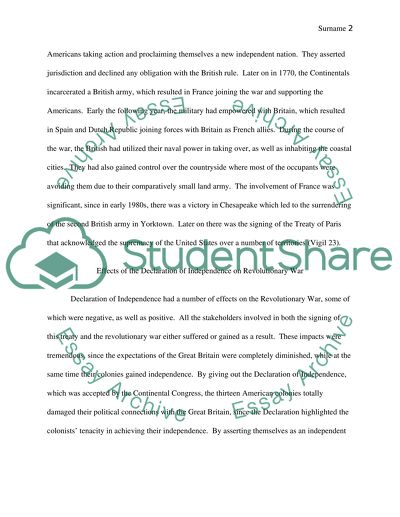Cite this document
(“How the Declaration of Independence was accepted in America and Europe Essay”, n.d.)
Retrieved from https://studentshare.org/history/1393284-research-paper
Retrieved from https://studentshare.org/history/1393284-research-paper
(How the Declaration of Independence Was Accepted in America and Europe Essay)
https://studentshare.org/history/1393284-research-paper.
https://studentshare.org/history/1393284-research-paper.
“How the Declaration of Independence Was Accepted in America and Europe Essay”, n.d. https://studentshare.org/history/1393284-research-paper.


